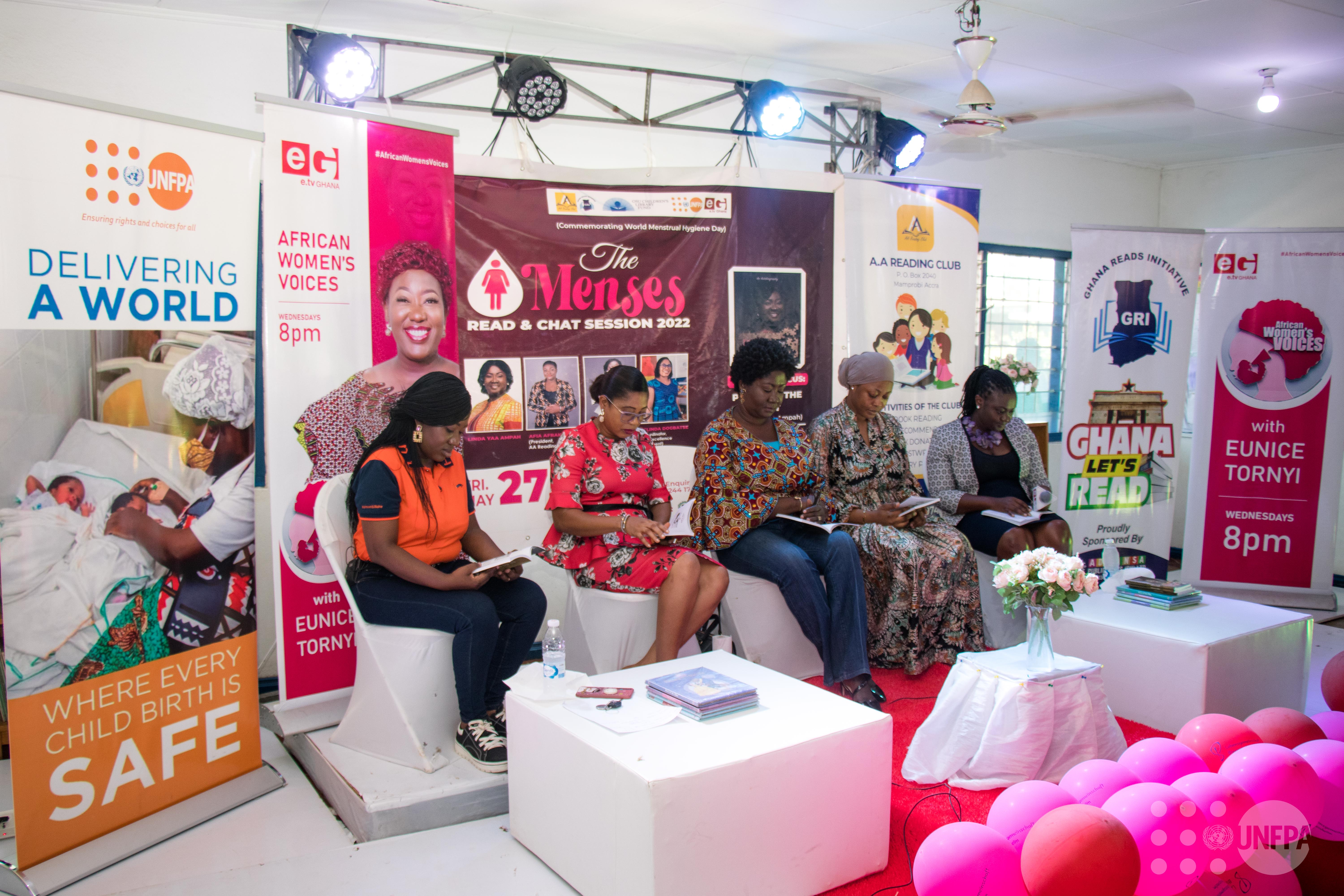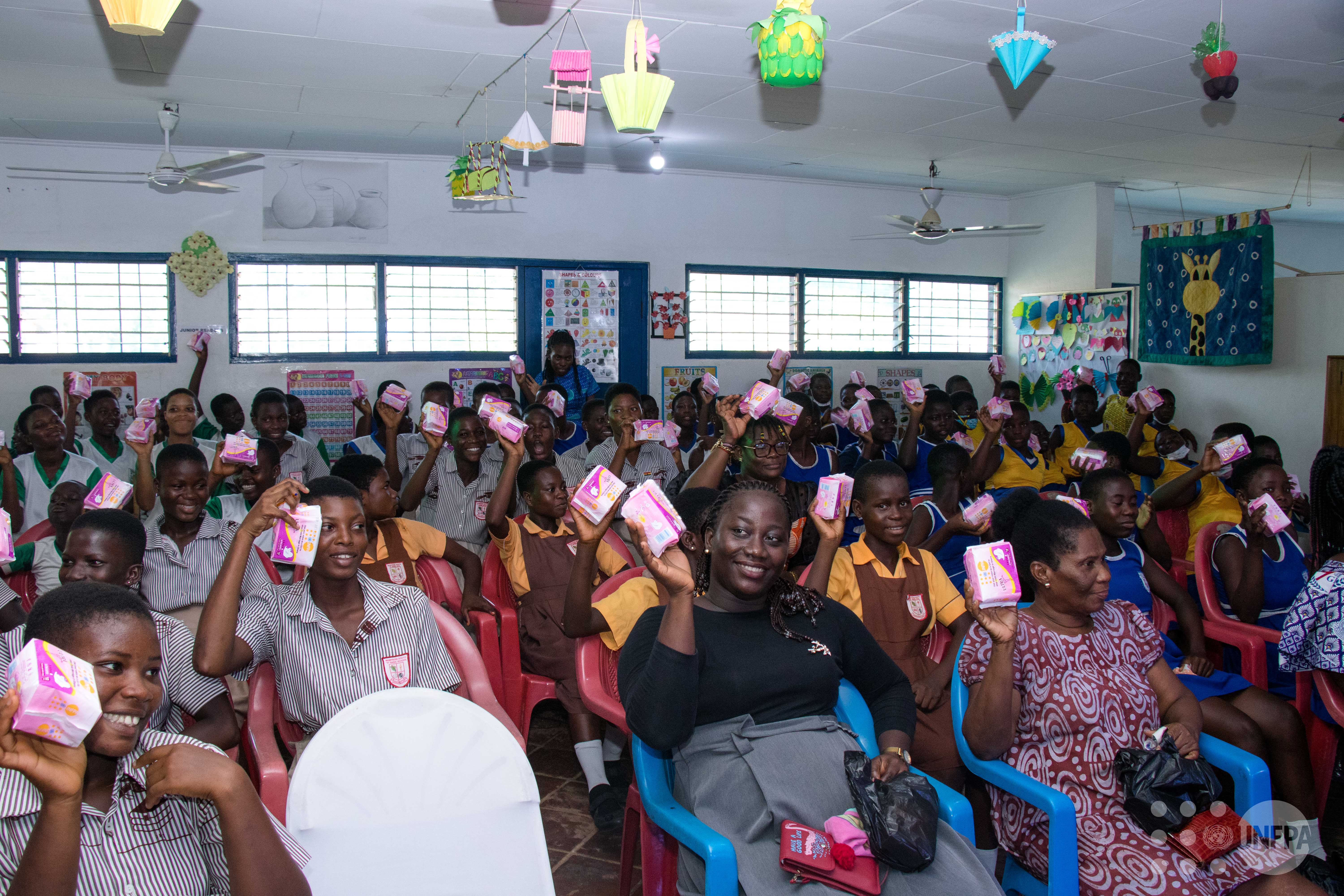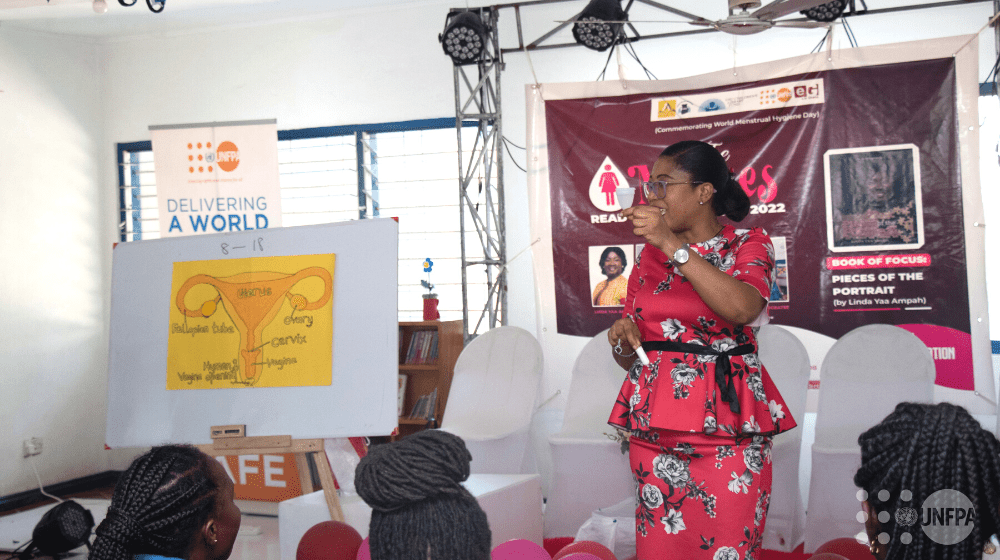On May 28 every year, the world observes Menstrual Hygiene Day to bring the attention of Governments, health professionals, women activists and the general public to the need to recognize menstruation as a biological process that naturally occurs among girls.
It is a known fact, due to a lack of education and adequate understanding on the topic of menstruation especially in Ghana, numerous girls are victims of stigma, and in worst cases, psychological abuse and trauma. For girls in school, menstruation happens to be one of the issues that keep them away because, often, they do not want to be ridiculed by their mates and thus, end up choosing to stay at home to prevent getting teased or peeved.
As part of the 2022 menstrual hygiene day commemoration, UNFPA, Ghana Reads Initiative and the Gale Community Library at Mamprobi, engaged about 300 adolescent girls on the issues of menstruation. The engagement was intended to introduce the participants to the ideas in the book by Ms. Linda Ampah, which speaks to issues affecting girls.

The discussion allowed the girls to learn from the story of the author and also her co-panelists, the need to be assertive as girls, while accepting that menstruation was natural and can be adequately managed with good hygiene. ‘I also wish to advise girls here to be bold to say no to sexual advances when you’re not ready for sex. Your no must be emphatic’, Ms. Ampah the author, added. Participants were also given information and education by resource persons using practical demonstrations. The girls asked questions and were given information aimed at dispelling myths and misconceptions around menstruation.
In support of the direction of the speakers, Ms. Kathy Knowles, Director of the Osu Children’s Fund, supporters of the Gale Community Library, encouraged the girls to embrace menstruation and not be scared. She mentioned that, ‘It can be very scary to have your menses when you are not prepared’, recounting her personal experience with menstruation.
Additionally, due to the persisting challenge with access and affordability of menstrual pads and hygiene products which contributes to period poverty, UNFPA through the Child Marriage programme donated sanitary to the over 300 girls who participated in the session.



